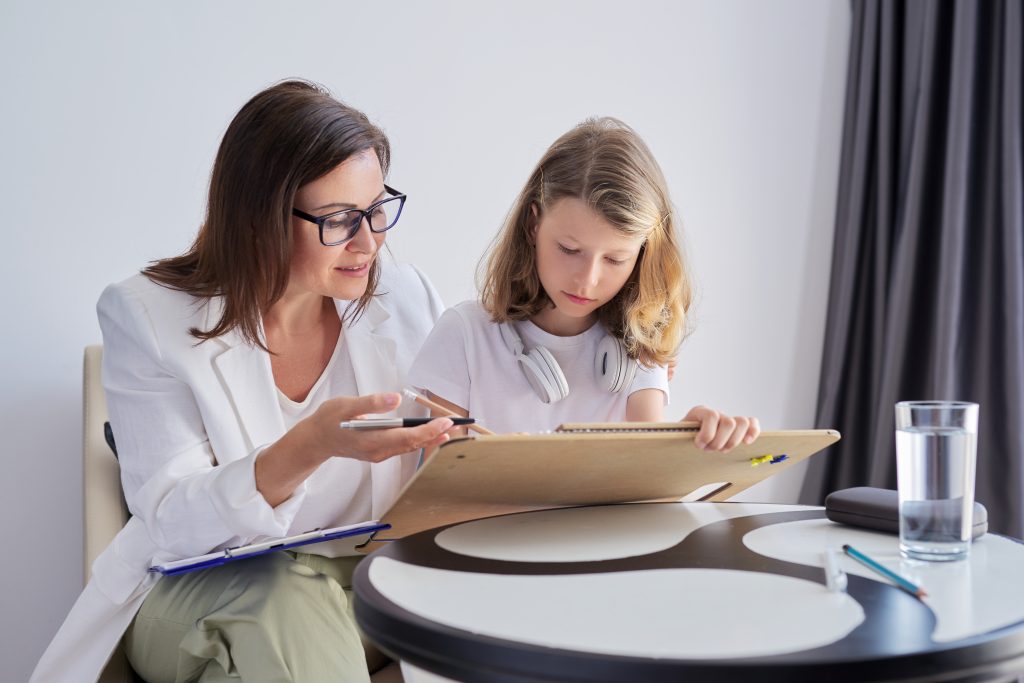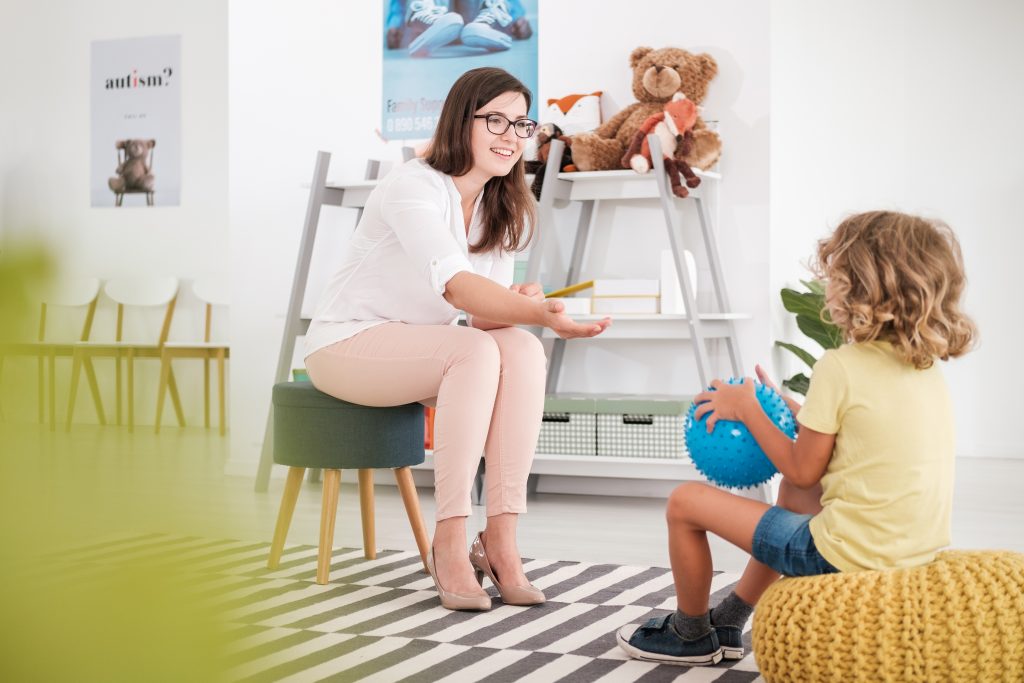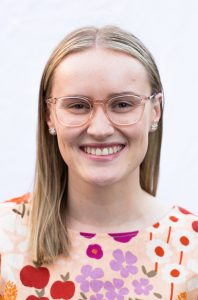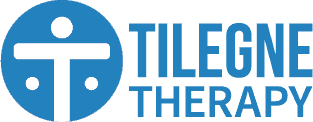Occupational Therapists Melbourne
What is Occupational Therapy?
Our Occupational Therapists (OT) help clients achieve their full potential using a holistic approach by enabling them to achieve client identified goals of what they have to do, need to do, and want to do. We assist with promoting independence in Activities of Daily Living (ADLs) including personal self-care tasks, fine motor skills, gross motor skills, domestic tasks, community access, transfers and mobility, and many more. Our Occupational Therapists are registered members of Occupational Therapy Australia and the Australian Health Practitioner Regulation Agency.
Make an appointment or find us at our clinic location conveniently located within the inner west Melbourne suburb of Footscray.
Who can Occupational Therapists help?

Occupational Therapy For Adults
Our occupational therapists are passionate about helping clients improve their identified goals surrounding independence, participation, and engagement in their Activities of Daily Living (ADLs). Being able to maintain and achieve independence improves general wellbeing and ultimately enhancing quality of life. Our highly qualified OTs have experience working with individuals from a diverse cultural and medical background including: Acquired Brain Injury (ABI), Intellectual Disability, Osteoarthritis, Stroke, Multiple Sclerosis (MS), Muscular Dystrophy, dementia, depression/anxiety and neurogenerative diseases. They are skilled to assist with:
- Assistive Technology – Assess and recommend equipment to increase functional independence in ADLs. E.g. shower chair, over toilet frame, walking frame, modified cutleries, personal alarm etc.
- Home modification – Perform environment and home safety assessment and provide appropriate home modification assessments. This enables clients to improve safety in mobility and transfers to maintain independence and reduce risk of falls to be able to stay at home longer. E.g. accessible ramps, grab rails, bathroom modification, etc.
- Emotional and behavioural regulation – increasing focus and attention, enhancing motivation, stress management, energy conservation and practicing mindfulness.
- Support to engage in daily lives – providing support and regular intervention to achieve goals post-injury through routine practice and strategies. E.g. visual schedules, reward system, etc.

Occupational Therapy For Children
Our peadiatric Occupational Therapists are skilled to assist your children in developing skills and independence to participate and engage at home, in school and in the community.
Our highly skilled occupational therapists have experience working with individuals from a diverse cultural and medical backgrounds including: Autism Spectrum Disorder (ASD), Intellectual Disability (ID), Global Developmental Delay (GDD), Cerebral Palsy (CP), Down Syndrome, learning difficulties.
Our enthusiastic OT’s are trained to assess and provide therapy for the following areas:
- Gross motor skills (standing, walking, running, sitting at a table at school). We also focus on hand eye-coordination skills, for example throwing, catching, kicking.
- Fine motor skills (handwriting, typing, tying shoelaces, doing up buttons/ zips, playing games).
- Sensory processing (self-regulation – emotional, increasing attention and concentration, managing behaviours, stress management, practicing mindfulness).
- Social skills (promoting engagement in make-believe play, turn taking, understanding social rules).
- Self-care tasks including toileting, dressing, eating, and showering.
- Community access training to support clients to take public transport safely and independently, walk to school etc.
- Support to engage in activities of daily living.
- Fine motor skills (handwriting, drawing, typing, tying, tying shoelaces, donning buttons, playing games).
- Gross motor skills including supporting hand eye coordination (jumping, balance, spinning, walking, running, safe seating).
- Emotion regulation.
- Sensory modulation and integration.
- Social participation and play skills.
- Self-care tasks (toileting, dressing, eating, and showering).
- Community access training to support clients to take public transport safely and independently, safely purchase items in the community.
View More Services
Tilegne Therapy is a multidisciplinary clinic that offers Speech, OT, Music Therapy and dietetics. We aim to offer a service where our therapists can work together in order to support the goals of each patient.
Why Choose Tilegne Occupational Therapists ?
We Know We Are Impacting Your Child’s Life
Our Occupational Therapists know that their programs and intervention are helping our clients engage and participate in goal-directed activities to encourage functional independence. This is what motivates us every day to create engaging therapy activities to focus their learning while making Occupational Therapy fun.
We Empower And Educate Parents / Caregivers
The most important influence on achieving Occupational Therapy goals are the family members / caregivers who provide support outside of therapy sessions. We understand that teachable moments happen in every moment, and we will empower families to make the most of such moments by providing feedback, resources and tips to use at home.


Our Quest For Learning Never Ends
We know our clients deserve the best treatment approach, and it is this passion that drives us to regularly update our clinical skills and participate in ongoing professional development programs. Our Occupational Therapists hold full registrations with their professional associations and keep updated with the latest research in evidence-based practice in order to offer the most effective intervention for your needs.
Our Ability To Work With Clients With Diverse Needs
We spend time building rapport and understanding the uniqueness of each client, in order to deliver our client-centered holistic Occupational Therapy programs effectively. We know no two clients having the same “diagnosis” are ever the same, therefore we collaborate with the client for achievable goals of what they want to do, have to do, and need to do. Tilegne Occupational Therapy being a multidisciplinary practice can also offer a coordinated service across different professionals while being under the same therapy family.
Customised Treatment Strategies For Every Client
We know that every client is a unique individual despite having the same “diagnosis.” We personalise our therapy programs according to the Person-Environment-Occupation Performance (PEOP) model. Our sessions are fun, efficient, and outcomes-driven, according to the needs of each client, taking into account their intrinsic factors and extrinsic factors to assess their occupation and performance. Our customised Occupational Therapy programs adhere to research-based practice, and therapy goals are targeted using the SMART framework.


We Offer Something For Busy Parents
We offer a range of occupational therapy options such as Saturday appointments, school-based, childcare, or Telehealth sessions. We also assist in understanding the range of funding options that may be available for your child. We are registered with Medicare, NDIS, and private health insurers for suitable clients.
We Believe That Therapy Progress Can Be Made Anytime / Anywhere
Waiting times are stressful and clients’ learning potential could be stifled if intervention is delayed. We also believe that neuroplasticity happens at any age, and progress can be achieved with the right team, right motivation and effort and effective therapy programs. With our large team of experienced therapists, we can offer sessions with minimal wait times. Let us help you develop your potential in life.
Occupational Therapy Process
A booking for an initial assessment will be matched to the most suitable therapist. Upon receiving your concerns and conducting initial
assessments you may receive verbal feedback or pay for a comprehensive report with findings of the assessment.

Case History Questionnaire
You may be asked to fill out a form to provide information regarding your prior medical history and your concerns relating to your condition. The therapist may discuss this information to assist with assessment, developing client-identified goals, and supporting future occupational therapy planning and ongoing therapy sessions.

Initial Assessment
First session
Your first session entails information gathering to gain a holistic picture of your client's needs and occupational therapy goals. For therapy with under 18s, we recommend the first session as consultation between only the therapist and parent/guardian for goal-setting.
Subsequent sessions
These first few sessions focus on building rapport with you and assessing a range of areas using both informal and standardised assessments. This will assist in identifying your strengths and needs. We are able to provide in-person observation, where the therapist can go to schools or home to obtain more information, with your consent. If your child has been seen by other health professionals (e.g. psychologists, speech pathologists), it will be beneficial to bring the reports so that the occupational therapist can get a better understanding of your development and associated concerns. Several areas of development will be assessed, such as ADL’s, attention, behavior, emotional regulation, social skills, mobility and transfers.

Analysis of Assessment Results
Upon completion of the assessments, your therapist will spend time analysing and making recommendations on areas of concern. If a formal assessment report is requested kindly note that it is chargeable. Depending on the assessment, your occupational Therapist will recommend therapy sessions with the frequency to be determined upon discussion. Therapy sessions can be conducted in the clinic, at home, at school or via telehealth.
At this clinic:
Our clinic has an amplitude of resources to develop your fine and gross motor skills, along with resources for regulating sensory processing needs. We provide fun and engaging therapy sessions to achieve your goals.
We also provide the option of outdoor therapy involving a sensory garden. Sensory garden creates opportunity for learning about the process of growing a plant, different smells, colours, and textures of plants. Outdoor space also focuses on enhancing gross motor skills with chances to run, jump, and move about for those who seek movement input to regulate their behaviours.
At home:
Our occupational therapists can come to you at the comfort of our clients’ homes for them to be able to be more secure and engaged in our therapy sessions. Home visits are suitable for those who have ADL-specific functional goals such as cooking, cleaning, and routine development. We also do home safety assessments to reduce risk of falls and independence in transfers and mobility.
At school:
Our occupational therapists can complete sessions with your child at school. These sessions will occur in the classroom working on areas identified in your goals. We also provide option for one-off observations in the classroom for recommendations on strategies for your child to best participate in their occupation as a student.
Telehealth:
Sessions can be completed via telehealth on zoom.
Ongoing guidance and feedback will be provided to facilitate goal achievement. Occupational therapy goals are targeted in an evidence-based approach using the SMART framework (Specific, Measurable, Agreed upon, Realistic, Time-Based).

Occupational Therapy Sessions
Depending on the assessment, your occupational therapist may recommend therapy sessions with the frequency to be determined upon discussion. Therapy sessions can be conducted in the clinic, at home, school or via telehealth. Ongoing guidance and feedback will be provided to carers to work with you outside of therapy sessions to facilitate goal achievement. Occupational therapy goals are targeted in an evidence-based approach using the SMART framework (Specific, Measurable, Agreed upon, Realistic, Time-Based). Your occupational therapists will develop tailored therapy sessions involving a variety of fun activities that target a wide array of skills identified in your goals.
Our Occupational Therapists Profiles

Georgia Gale
Occupational Therapist | BOT
Georgia is a skilled and engaging Occupational Therapist who completed her Bachelor of Occupational Therapy at Australian Catholic University. She has gained invaluable experience working with adults and children in homes, schools, and hospitals both in Australia and overseas. She has provided therapy to assist in self-care tasks, upper limb rehabilitation, sensory processing, handwriting, engagement in the community, and cognitive therapy and provided recommendations for equipment or home modifications to support the client.
Georgia experience in both local and overseas voluntary work with disadvantaged children and communities have deepened her appreciation for a holistic approach towards a person’s development. It has deepened her ability to work with difficult emotional behaviours, maintain close and open communication with parents and professionals and to maximise outcomes for the child. She is passionate about client and family-centred therapy to support individuals to achieve their goals. She strives to assist clients in all activities of daily living in their life including gross motor skills, fine motor skills, sensory processing, concentration, and self-care tasks at home, in school, and in the community. Outside of work, Georgia enjoys going on hikes, cooking and listening to music.

Esmaraee Aref
Occupational Therapist | BOT
Esmaraee is a highly motivated and enthusiastic therapist who completed his Bachelor of Occupational Therapy at Deakin University. He has gained invaluable experience in various therapeutic techniques including exercises, adaptive equipment, and environmental modification and worked with clients of all ages, from paediatric to geriatric, with a wide range of conditions including but not limited to: physical disabilities, mental health disorders, developmental delays, and chronic illnesses. He is dedicated to helping clients achieve their goals and reach their maximum level of independence.
Esmaraee is a compassionate therapist who is passionate about the well-being of his clients. He takes the time to understand the unique needs and goals of each individual and works closely with them to develop a personalized treatment plan that will help them reach their full potential. Esmaraee can help children (through play-based therapy), adolescents and adults with activities of daily living at home, in school and in the community in any of the following areas:
- Fine motor skills
- Gross motor skills
- Sensory processing and modulation (how we take in and interpret sensory information from our environment)
- Visual perceptual processing (how our brain makes sense of what our eyes are seeing)
- Proprioception (our awareness of where our body is and how it moves)
- Emotional regulation
- Self-care routines
- Sequencing
- Planning
- Routine
- Feeding/eating
- Toileting
- Play and social skills
- Confidence and self-esteem
Esma continues to strengthen his knowledge through professional development, he has completed a range of professional development including:
- DIR Floor time (101).
- The Complex intersection between ADHD, sensory processing disorder and dysgraphia.
Outside of work, Esma enjoys going on hikes and playing soccer.
Occupational Therapy FAQs
FAQs
General Questions
Going through OT, children can:
- Develop fine motor abilities necessary for grasping and releasing toys, as well as handwriting and computer skills.
- Improve their eye–hand coordination so kids can play and perform necessary school tasks like bat a ball and copy from a chalkboard.
- Develop fundamental life skills such as bathing, dressing, brushing teeth, and self-feeding.
- By seeing how others handle their irritation and anger, you may develop constructive habits and social skills.
- Provide them with specialised equipment to assist them in achieving independence. Wheelchairs, splints, bathing equipment, dressing devices, and communication aids are only a few examples.
OT can assist children and adolescents who have the following conditions:
- birth defects or birth injuries
- sensory processing abnormalities
- catastrophic brain or spinal cord damage learning disabilities
- autism rheumatoid arthritis in children
- psychological or behavioural difficulties
- fracturing bones or sustaining other orthopaedic injuries
- developmental impediments
- postoperative complications
- burns
- traumatic amputations due to spina bifida
- cancer
- hand injuries that are serious
- rheumatoid arthritis, cerebral palsy, and other chronic diseases
Occupational therapists promote health and well-being by enabling people to engage in daily occupations such as self-care activities such as showering, dressing, and food preparation; productive activities such as education, work, volunteering, and caring for others; and leisure/social activities such as joining a community group, participating in a hobby, and participating in sports. Occupational therapists are critical in assisting persons with disabilities in identifying and implementing techniques that facilitate their participation in jobs. This may entail altering an activity or the surrounding environment.
Occupational therapists work in a variety of public and private settings, including community health centres, public and private hospitals, aged care facilities, people’s homes, education facilities, mental health settings, private clinics and non-governmental organisations, correctional institutions, universities and research facilities, corporate and industrial settings, and correctional institutions.
There are several reasons why an individual could benefit from visiting with an occupational therapist. This may involve obtaining support with readjusting to life following an injury, developing a short- or long-term sickness or disability, or undergoing a time of significant life change that has an effect on one’s health and well-being. Occupational therapists deal with individuals who are suffering from physical and mental diseases and impairments. Occupational therapists may give assistance in the following main areas of activity:
- Activities of daily life such as showering, dressing, grooming, and eating;
- Activities that require several steps and may entail caring for others, such as household management, shopping, childcare, budgeting, banking, financial management, home maintenance, and driving;
- Activities in education that enable an individual to participate as a learner in a learning environment;
- Recreational and recreational activities; involvement in social events; and employment (paid and unpaid).
- What services are provided by occupational therapists?
- Utilisation of professions and activities for therapeutic purposes, including utilisation of one’s self (including one’s personality, insights, views, and judgements as part of the therapeutic process);
- Self-care, self-management, household management, and community/work/school reintegration skills development;
- Individuals, including family members, carers, and others, are educated and supported via collaborative and consultative partnerships and family-centered approaches.
- Coordination of care, case management, and transition services, such as discharge planning, client advocacy, and referral to appropriate resources;
- Environment modification (e.g., at home, work, school, or community) and process adaptation, including the use of ergonomic concepts;
- Equipment assessment, customization, and monitoring, including orthotic device provision and instruction in the use of prosthetic devices;
- Driver rehabilitation and community mobility; evaluation and intervention in natural settings (i.e., the family, school classrooms, work settings, and community); and
- Utilisation of a variety of specialised therapeutic methods to improve performance, including wound care management, sensory, perceptual, and cognitive processing enhancement approaches, and manual therapy technique abilities.
Occupational therapists must meet the following qualifications in order to practice:
- Complete an accredited undergraduate or masters-level occupational therapy entry-level course;
- Maintain a minimum of 30 hours of ongoing professional development every year; and
- Comply with national regulatory criteria established by the Australian Occupational Therapy Board for the Australian Health Practitioners Regulation Agency.
Contact us, we are here to help
Our mobile therapists are able to visit your home

